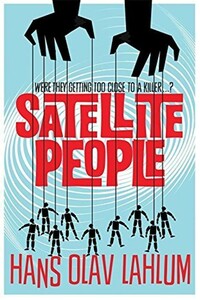The Catalyst Killing | страница 37
Martin Morgenstierne showed me into the drawing room and we sat down opposite each other on very generous sofas. I politely declined his offer of a drink. He poured himself a small glass of cognac from a large drinks cabinet, but left it untouched to begin with. I waited to see if he would say anything first. In the meantime, I glanced swiftly around the room.
The contrast with the Reinhardts’ flat in Seilduk Street was striking, and it was not difficult to understand why the meeting of the two families had been such a collision both politically and culturally. The walls here were at least twice as big as the Reinhardts’, but with the exception of three impressive bookcases, they were panelled and remarkably empty. There were a couple of plaques honouring Martin Morgenstierne himself, and two pictures of him with an attractive, elegant dark-haired woman, who was obviously his wife. The first was an old black and white wedding photograph, the second a more recent colour photograph from their silver wedding anniversary or some such celebration. Martin Morgenstierne was easily recognizable. However, there was a stark contrast between his broad, apparently genuine smile in the pictures on the wall and his very grave expression now.
The drawing room almost gave the impression that Martin Morgenstierne had had a happy but childless marriage. There was no trace of his daughter, though I suspected that at some point there had been. Below the photographs of himself and his wife were two lighter squares on the wooden panelling, telling of photographs that had been removed.
Martin Morgenstierne was clearly an intelligent man with good social skills. He followed my gaze around the room for the first thirty seconds or so, before breaking the silence.
‘You are no doubt somewhat surprised that I do not have any photographs of my only daughter here, and that I carried on working as usual after I had received the news of her death.’
I nodded my confirmation. He continued, still without a shadow of a smile.
‘My family has always had a strong sense of duty and work ethic. I have not missed a single day of work, other than trade holidays, for more than a decade. I have worked extremely hard all my life and my compulsion to work became even stronger after the death of my wife. I realized very quickly that I would go mad if I stayed at home on my own too much. So instead, I worked my way through the greatest sorrow I have ever experienced. And now I will do the same.’




